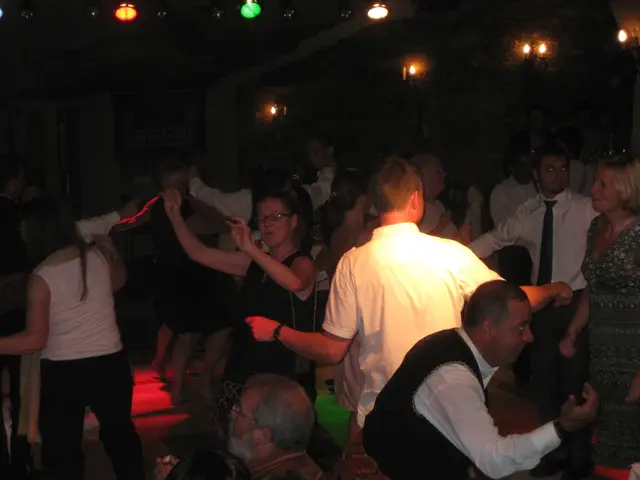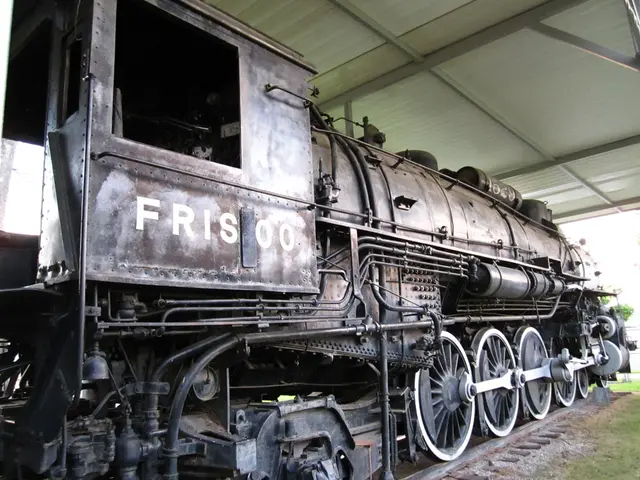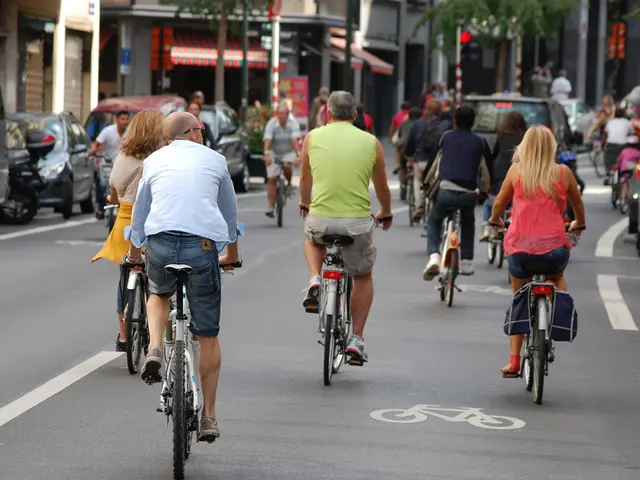Discussion on Venezuela's 2025 Elections, Election Security Measures, and Constitutional Amendments: Interview with Oliver Rivas
With the May 25 elections rapidly approaching, it's time to discuss the candidates and the process they were chosen through. Here's a quick rundown of how it went down:
As Nicolás Maduro and the PSUV leadership stated, the candidate selection process was a mix of grassroots participation and strategic decision-making. Open assemblies took place in every barrio (neighborhood) across the country in March. These gatherings weren't just for PSUV members, but the entire Simón Bolívar Great Patriotic Pole—the Chavista parties bloc—gathered to nominate those deemed suitable for top leadership roles, such as governors, state-level legislative council members, and National Assembly deputies[1].
Local people had their voices heard in these assemblies, actively engaging the rank-and-file members of the PSUV and other aligned parties to ensure the elected candidates were a true representation of the grassroots[1]. The PSUV leadership guided the selection process, ensuring that the chosen candidates aligned with the party's goals and political strategy for the elections[1].
Interestingly, this approach bucked the trend of previous primaries or internal elections, fostering not division but unity within the Great Patriotic Pole, demonstrating its effectiveness in generating legitimacy[2].
Now, let's talk about the 2024 presidential elections and the upheaval that followed. Before diving in, it's important to mention a new factor that could help maintain peace in the upcoming elections: the Simón Bolívar Law[3]. This law aims to protect Venezuela's electoral system by banning extremist, right-wing elements with ties to foreign powers from participating in elections.
These actors have a history of attempting to delegitimize Venezuela's electoral system, often promoting insurrections and foreign-backed coups[3]. The law empowers the justice system to block any efforts to use Venezuelan institutions as vehicles for legitimizing insurrections. In the context of the July 28 elections, these elements published fake exit polls and so-called "tally sheets" to undermine the CNE's authority and Venezuela's overall democratic legitimacy.
It's crucial to understand that democracy in Venezuela is strong—electoral participation is real, consistent with constitutional mandates, and doesn't require foreign approval[3].
In short, the US-aligned bloc won't be fielding candidates because they didn't comply with Venezuelan legislation in the context of the 2024 presidential elections[3].
Don't worry, though, there are still opposition groups involved in the upcoming elections. These individuals recognize Venezuela's democratic processes and are running for office[4]. Key figures like Henrique Capriles Radonski, Chúo Torrealba, and Vladimir Villegas are supporting centrist or moderate opposition candidates. Their decision to get involved strengthens the democratic process[4].
Ironically, these figures used to question Venezuela's electoral system. But, they now claim to uphold democracy while backing these candidates[4]. Regardless, the people will assess their support.
Moving on, we can't ignore the upcoming constitutional reform called for by President Maduro[5]. This reform aims to incorporate communal elements into Venezuela's constitutional text, taking a significant step towards implementing communal socialism.
Throughout this year, Maduro has promoted various popular consultations designed to open the door to more direct forms of decision-making[5]. Consultations help communities determine collective priorities from below, empowering them to shape the agendas of municipal and regional governments as well as ministries.
This push to center the communes defines the constitutional reform process, which will engage the nation in a national conversation about the kind of state we want to build[5]. By updating the text, the government aims to strengthen its vision of a democratic, social, law-based, and just state.
Ultimately, the transformed text will empower the majority while enhancing mechanisms for direct democracy. For Chavismo, this is the most democratic path forward for building communal socialism[6].
In conclusion, as a long-time grassroots activist, I'm optimistic about where we are headed. The construction of a new democracy from below is beginning to blossom in communes, paving the way for a new social order that transcends capitalism. The commune is a gathering point for working-class struggles, whether it's housing, education, production, or services. For instance, the president recently requested that the Ministry for Communes lead the construction of housing for over three million families[6]. This indicates a firm trust in self-managed and community-led models. I believe that every sector in our society will find its objectives fulfilled through communal action. That, for us, is what's important in these changing times!
[1] Enrichment Data – Grassroots Participation in Candidate Selection[2] Enrichment Data – Building Consensus Within the Great Patriotic Pole[3] Enrichment Data – Simón Bolívar Law[4] Enrichment Data – Opposition Involvement in Upcoming Elections[5] Enrichment Data – Venezuelan Constitutional Reform[6] Enrichment Data – Community Self-Management and Housing Construction
- The 2024 presidential elections may witness a decrease in conflict due to the Simón Bolívar Law, which prohibits extremist, foreign-linked elements, historically accused of delegitimizing Venezuela's electoral system, from participating.
- As camps within politics try to manipulate and undermine Venezuela's democratic legitimacy, it's crucial to emphasize the country's strong electoral participation, adhering to constitutional mandates, and not requiring foreign approval.
- Elections in the past have been marred by various factors, including car accidents, fires, and crimes, making the process of legitimizing the results more challenging, yet the resilience of the electoral system has always been maintained.
- In line with the assemblies held earlier, grassroots participation will continue to play a significant role in candidate selection, fostering unity and legitimacy.
- Lifelong learning and access to education-and-self-development are essential for migrants seeking opportunities in a new land, as well as for addressing the needs of people living in Venezuela.
- As the Venezuelan government strives to build communal socialism, popular consultations play a crucial role in deciding collective priorities in local communities and shaping the agendas of government entities.
- When it comes to politics, it's essential to remain updated on subjects ranging from general news to crime-and-justice and policy-and-legislation, as they offer valuable insight into the workings of the political landscape.
- Participating in online education can help individuals broaden their knowledge and skills, making them better equipped to navigate their everyday lives and contribute positively to their communities.
- Learning is a lifelong process, and adopting a learning mindset is essential for tackling challenges effectively and embracing change as an opportunity for growth, especially in rapidly evolving societies like Venezuela.









